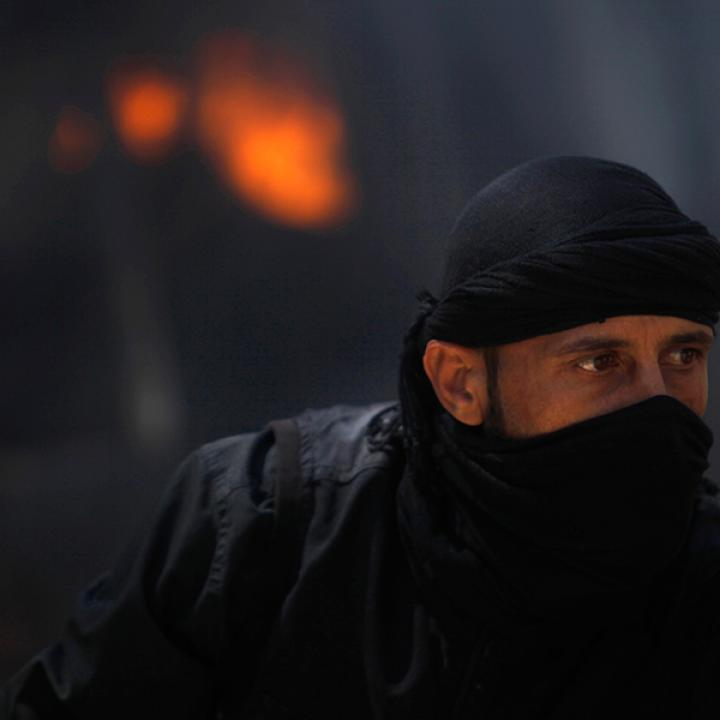

Regardless of what Washington calls the group, intelligence reports show that it represents a very real threat.
So it now appears that the Khorasan Group -- the al Qaeda element embedded within Jabhat al-Nusra in Syria but targeting the West, not Assad -- may actually be called the Wolf Unit. This doesn't mean anything at all, since we already knew that U.S. officials were aware of the group or cell's existence but didn't know what they called themselves, so they came up with the Khorasan name so as to have a way to refer to the group. But the name game is going to serve as fodder for those intent on playing down the significance of this cell and pointing to the sudden revelation of its existence (but not its true name) as evidence the U.S. government is just making stuff up to justify airstrikes. I wish it were that simple or silly.
It is indeed odd that senior U.S. intelligence, law enforcement and counterterrorism officials who testified before Congress just before authorities went public with the group's existence made no mention of it whatsoever -- explicit or otherwise -- in their testimonies on the "Worldwide Threats to the Homeland." I don't think that was because they intended to mislead the public, however, I think they were still trying to make heads and tails out of this group, some of whose members they'd been following for as long as one or even two years.
In fact, the Khorasan Group is the real deal, as I laid out in a recent piece, though apparently with fewer members since airstrikes hit their facility in Syria killing their leader, Mohsen al-Fadhli, and others. Even so, the collocation of experienced al-Qaeda operatives from around the world, together with the know-how of AQAP's most skilled and ingenious bomb maker, and the ready availability of Western foreign fighters in Syria, combined to present a truly unique, and officials say near-term, threat to Western interests.
For example, though it was mocked at the time, it was the threat presented by this group that led the Transportation Security Administration to ban uncharged mobile phones and laptops on flights coming to the United States from Europe or the Middle East. More recently, the Pentagon informed, the U.S. had "information on specific, concrete plotting" against aviation targets by members of this network, although there was no information of an "imminent" attack against any specific flight. But that's not all. The Khorasan Group was apparently also considering low-tech plots intended to terrorize Western society. American and British sources are now whispering to the press about British and Australian intelligence suggesting "the real possibility" of a "knife and gun" attack by Western foreign fighters fresh from the battlefield in Syria.
So, what's in a name? Not a whole lot. Call this group, or cell, or network whatever you like. They apparently call themselves something other than the name given to them by some U.S. government bureaucrat. But whatever you call them, take the threat they pose seriously. No need for hysterics, but best not to pretend that what appears to be a very real threat is made up either.
Matthew Levitt is the Fromer-Wexler Fellow and director of the Stein Program on Counterterrorism and Intelligence at The Washington Institute.
Homeland Security Policy Institute



